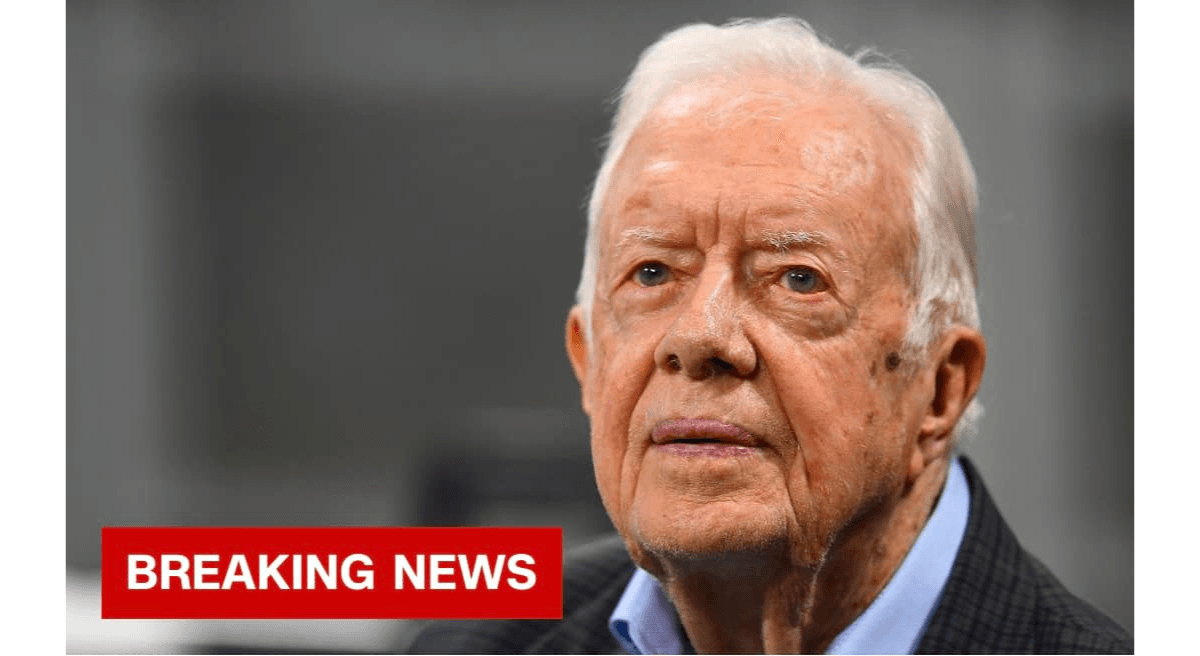Jimmy Carter’s Early Life: Humble Beginnings of a Future Leader
James Earl “Jimmy” Carter Jr., the 39th President of the United States, was born on October 1, 1924, in the small town of Plains, Georgia. His early life was marked by simplicity, strong family values, and an upbringing that instilled in him a deep sense of responsibility, resilience, and empathy—traits that would later define his leadership style.
A Rural Upbringing
Jimmy Carter was the eldest of four children born to James Earl Carter Sr. and Lillian Gordy Carter. His father was a successful farmer and businessman who also served as a local community leader, while his mother was a registered nurse known for her progressive views on race and her commitment to social causes. The family lived modestly in Plains, but Carter’s childhood home, a farmhouse without electricity or indoor plumbing, reflected the rural, agrarian lifestyle of the time.
Carter grew up working on his family’s peanut farm, where he developed a strong work ethic and an appreciation for the challenges of agricultural life. These experiences fostered his lifelong connection to the land and an understanding of the struggles faced by rural Americans. His father, a strict but fair disciplinarian, emphasized the importance of hard work and integrity, while his mother’s compassion and open-mindedness profoundly influenced his worldview.
Education and Early Ambitions
Carter attended Plains High School, where he excelled academically and showed a natural curiosity for learning. A voracious reader, he developed an early interest in history, politics, and science. Although Plains was a small town with limited resources, Carter’s intellect and determination set him apart. His upbringing in the segregated South also exposed him to the realities of racial inequality, an issue that would later shape his political and humanitarian endeavors.
After graduating from high school in 1941, Carter pursued higher education at Georgia Southwestern College and then transferred to Georgia Institute of Technology. He had aspirations of becoming a naval officer, a dream fueled by his fascination with the sea and his ambition to serve his country.
Naval Academy and Marriage
In 1943, Carter received an appointment to the United States Naval Academy in Annapolis, Maryland. He thrived in the rigorous academic and physical environment, graduating in 1946 with a degree in engineering and a commission as an ensign in the U.S. Navy. During his time at the academy, he met Rosalynn Smith, a family friend from Plains. The two married shortly after his graduation, beginning a partnership that would become the cornerstone of his personal and professional life.
Influences of Early Life
Carter’s early life in rural Georgia, shaped by hard work, family values, and a commitment to fairness, laid the foundation for his future endeavors. His experiences on the farm and his exposure to racial and economic disparities fueled his desire to make a difference. These formative years were crucial in developing the character and values that would guide him as a public servant, humanitarian, and advocate for human rights.
Jimmy Carter’s rise from a humble farm boy in Plains to the presidency is a testament to the enduring impact of a grounded upbringing. His early life not only influenced his approach to leadership but also instilled in him a sense of purpose that he carried throughout his career and beyond.
Former President Jimmy Carters Presidential Legacy
Jimmy Carter, the 39th President of the United States, served from 1977 to 1981 during a period marked by both domestic challenges and international shifts. Despite a presidency often overshadowed by crises such as inflation, the energy shortage, and the Iran hostage situation, Carter’s legacy is far-reaching and multifaceted. His presidency—and his decades of post-presidency work—reflect a commitment to human rights, diplomacy, and public service that has significantly influenced both American society and the global stage.
Early Challenges and Achievements
When Carter assumed office, the United States was grappling with an array of domestic problems. Inflation and unemployment were on the rise, exacerbated by an energy crisis that had begun in the early 1970s. Carter’s administration attempted to address these issues through a mix of policy initiatives, including the creation of the Department of Energy in 1977. Carter’s emphasis on energy conservation and renewable energy sources was ahead of its time, laying the groundwork for subsequent efforts to tackle climate change and energy dependency.
Carter also prioritized ethics and transparency in government, a response to the disillusionment caused by the Watergate scandal. His outsider status and emphasis on integrity helped restore some faith in American political leadership. However, his unorthodox approach to governance and strained relationships with Congress often hampered his legislative agenda.
A Commitment to Human Rights
One of the defining features of Carter’s presidency was his emphasis on human rights as a cornerstone of U.S. foreign policy. This approach was a departure from the Cold War-era focus on containing communism at all costs, often at the expense of supporting authoritarian regimes. Carter’s administration sought to align American foreign policy with moral principles, advocating for human dignity and freedoms.
This commitment was evident in Carter’s dealings with Latin America, where his administration pushed for democratic reforms and condemned human rights abuses. The Panama Canal Treaties, signed in 1977, symbolized a shift toward respecting the sovereignty of other nations. By agreeing to transfer control of the canal to Panama by the end of the 20th century, Carter aimed to rectify a historical grievance and improve relations with Latin American countries.
The Camp David Accords
Carter’s most enduring foreign policy achievement was the Camp David Accords, a landmark peace agreement between Egypt and Israel brokered in 1978. The accords resulted in Egypt becoming the first Arab nation to recognize Israel, and Israel agreeing to withdraw from the Sinai Peninsula. The negotiations, which took place over 13 intense days at the presidential retreat in Maryland, showcased Carter’s dedication to diplomacy and his ability to mediate between adversaries.
The Camp David Accords not only earned Carter international acclaim but also demonstrated the potential for American leadership in fostering peace. The agreement remains a cornerstone of Middle Eastern diplomacy, despite ongoing tensions in the region.
Domestic Setbacks
While Carter achieved notable successes, his presidency was also marked by significant challenges and perceived shortcomings. The energy crisis remained a persistent issue, with oil shortages and soaring gas prices causing public frustration. Carter’s televised “malaise” speech, in which he discussed a “crisis of confidence” among the American people, was intended to inspire reflection and resolve but was widely criticized as pessimistic.
Economic difficulties, including stagflation—a combination of high inflation and stagnant economic growth—further eroded public confidence in his administration. Carter’s inability to effectively address these issues contributed to his defeat in the 1980 presidential election by Ronald Reagan.
The Iran Hostage Crisis
Perhaps the most defining challenge of Carter’s presidency was the Iran hostage crisis. In November 1979, Iranian militants seized the U.S. Embassy in Tehran, taking 52 Americans hostage. The crisis, which lasted 444 days, dominated the final year of Carter’s presidency and underscored the limitations of U.S. power in the face of revolutionary movements.
Carter’s efforts to resolve the crisis through diplomatic channels and a failed rescue mission highlighted the complexities of the situation but ultimately did little to restore public confidence. The hostages were released on the day of Reagan’s inauguration, further cementing the perception of Carter’s ineffectiveness in handling the crisis.
Post-Presidency Contributions
Carter’s legacy extends far beyond his time in office. After leaving the White House, he founded the Carter Center in 1982, an organization dedicated to advancing human rights, promoting democracy, and alleviating global suffering. Through the Carter Center, he has worked to combat diseases such as guinea worm and river blindness, oversee democratic elections in developing countries, and mediate international conflicts.
Carter’s post-presidency is widely regarded as one of the most impactful in American history. His efforts earned him the Nobel Peace Prize in 2002, recognizing his decades-long commitment to peace and humanitarian work. Unlike many former presidents, Carter used his post-office years to actively engage with global challenges, demonstrating an unwavering dedication to public service.
Environmental Advocacy
A lifelong advocate for environmental sustainability, Carter’s contributions to environmental policy began during his presidency and continued afterward. He installed solar panels on the White House and championed energy conservation measures, signaling the importance of transitioning to renewable energy. Although these efforts were curtailed by subsequent administrations, they presaged the modern movement for environmental responsibility.
In his later years, Carter remained vocal about the need for urgent action on climate change, emphasizing the interconnectedness of environmental, economic, and social issues. His foresight in this area has solidified his reputation as a leader who prioritized long-term solutions over short-term political gains.
A Legacy of Integrity and Service
Carter’s legacy is defined not only by his accomplishments but also by his character. Known for his humility, honesty, and commitment to ethical leadership, Carter’s life has been a testament to the values he espouses. His presidency, while fraught with challenges, laid the foundation for a more principled approach to governance and international relations.
Critics often highlight the shortcomings of Carter’s administration, but his broader contributions—particularly in the realms of human rights, peacebuilding, and humanitarian work—have earned him widespread respect. His emphasis on morality in politics and his relentless pursuit of justice have left an indelible mark on the world.
Conclusion
Jimmy Carter’s presidential legacy is a study in contrasts. While his time in office was marked by significant challenges and unmet expectations, his achievements in diplomacy, human rights, and energy policy remain influential. Moreover, his post-presidency work has redefined the role of former presidents, showcasing the potential for continued public service long after leaving the White House.
As Jimmy Carter passed away today, Carter’s life and legacy exemplify the power of integrity, compassion, and perseverance. From brokering peace agreements to eradicating diseases, his contributions have improved countless lives and set a standard for ethical leadership. In the face of adversity, Carter’s unwavering commitment to his principles has cemented his place as one of the most impactful and respected figures in American history.



